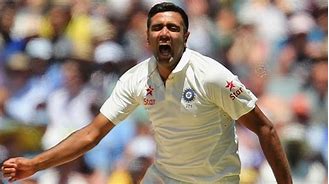Feature
Cyclone Vardah leaves debris, damage; dents digital payment mode in TN
Chennai. Chennaities woke up to uprooted trees/big branches blocking the roads, fallen name boards and hoardings, damaged compound walls and vehicles under fallen trees, power cuts and lack of milk supplies on Tuesday, a day after Cyclone Vardah ripped through the city.
While the cyclone  hit residents have now become accustomed to closed ATMs it was a rude shock to many when hoteliers and shopkeepers declined to accept card payments citing non-working point of sale terminals owing to network failure.
hit residents have now become accustomed to closed ATMs it was a rude shock to many when hoteliers and shopkeepers declined to accept card payments citing non-working point of sale terminals owing to network failure.
“There was no power at home and no milk. So we decided to go to a hotel and have brunch. However the hotel said they are not accepting card payments as the swipe machine was not working. We had to come back home to have a home-cooked meal,” K. Muralidharan, a public sector employee told IANS.
Similar was the experience of V.Revathi, a home maker who had to pay up the scarce cash she had when she had to purchase a bucket and a rope to draw water from her well as the power was not there.
“The central government must think of natural calamities when taking major decisions that have large impact on people like demonitisation. There is neither real money nor plastic money with us,” P. Kumar, a private sector employee, told IANS.
People in the residential localities after being awed by the damage caused by the cyclone started cleaning their compound of fallen trees, leaves and other muck that was blown by the cyclonic winds.
“It is as if we are in the midst of a forest,” quipped A. Viswanath, a businessman surveying the fallen trees in his locality.
In a statement issued on Monday, Tamil Nadu Chief Minister O. Panneerselvam said over 4,000 trees fell.
According to citizens the number could be much more if one takes into account the trees inside the residential compounds and the parks.
Meanwhile the municipal corporationis also removing the fallen trees from roads.
In areas not reached by corporation officials, residents themselves cut the branches of fallen trees creating space for movement on the roads.
Around 200 students of Ramakrishna Mission Home here actively lent an helping hand to the residents of different localities by clearing the trees fallen on the roads.
“Divided into small groups, we went to different localities and cleared the roads of fallen trees,” a student told IANS.
The student group that IANS met were very enthusiastic about their mission, with one of them eagerly detailing the work they had done since morning.
While bus services were resumed, it would take some more time for the services to become normal as the routes have to be cleared of trees.
At the spot where former Tamil Nadu Chief Minister J. Jayalalithaa was buried at the Marina beach, the canopy remained intact despite the cyclonic winds.
Several sand bags were lined up surrounding the burial spot to prevent flooding.
The burial place continued to get stream of visitors from early morning.
The cyclone has affected power generation at North Chennai Thermal Power Station’s (NCTPS) 600 MW Unit 1, the Power System Operation Corporation Ltd (POSOCO) said.
According to POSOCO, two other units of NCTPS (one 600 MW and another 210 MW) went out of operation on Monday, and it is not known when they will resume generation.
The NCTPS Unit 1 was hand tripped due to heavy winds on Monday morning while the second 600 MW unit stopped due to electrical problem.
The reason for stoppage of 210 MW unit at NCTPS is awaited, said POSOCO.
Similarly, the two 220 MW units at Madras Atomic Power Station (MAPS), too, stopped operating on Monday evening due to tripping of power evacuation lines, POSOCO said.
In a statement, MAPS Station Director R.Satyanarayana said that due to high speed cyclonic wind, the 230 KV power lines tripped one after another.
“As power evacuation from station was not possible, both the units were tripped and brought to safe shut down state,” he said, adding that in three days, both the units would be brought back to service once the 230 KV power lines are normalised.
In the evening however, power supply was restored in some localities in Chennai.
Cyclone Vardah is the first natural disaster after O. Panneerselvam took over as the state Chief Minister and the administration seems to have passed the acid test, people felt.
Entertainment
Meghalaya Reserves Legalized Gambling and Sports Betting for Tourists

The State Scores Extra High on Gaming-Friendly Industry Index
Meghalaya scored 92.85 out of 100 possible points in a Gaming Industry Index and proved to be India’s most gaming-friendly state following its recent profound legislation changes over the field allowing land-based and online gaming, including games of chance, under a licensing regime.
The index by the UK India Business Council (UKIBC) uses a scale of 0 to 100 to measure the level of legalisation on gambling and betting achieved by a state based on the scores over a set of seven different games – lottery, horse racing, betting on sports, poker, rummy, casino and fantasy sports
Starting from February last year, Meghalaya became the third state in India’s northeast to legalise gambling and betting after Sikkim and Nagaland. After consultations with the UKIBC, the state proceeded with the adoption of the Meghalaya Regulation of Gaming Act, 2021 and the nullification of the Meghalaya Prevention of Gambling Act, 1970. Subsequently in December, the Meghalaya Regulation of Gaming Rules, 2021 were notified and came into force.
All for the Tourists
The move to legalise and license various forms of offline and online betting and gambling in Meghalaya is aimed at boosting tourism and creating jobs, and altogether raising taxation revenues for the northeastern state. At the same time, the opportunities to bet and gamble legally will be reserved only for tourists and visitors.
“We came out with a Gaming Act and subsequently framed the Regulation of Gaming Rules, 2021. The government will accordingly issue licenses to operate games of skill and chance, both online and offline,” said James P. K. Sangma, Meghalaya State Law and Taxation Minister speaking in the capital city of Shillong. “But the legalized gambling and gaming will only be for tourists and not residents of Meghalaya,” he continued.
To be allowed to play, tourists and people visiting the state for work or business purposes will have to prove their non-resident status by presenting appropriate documents, in a process similar to a bank KYC (Know Your Customer) procedure.
Meghalaya Reaches Out to a Vast Market
With 140 millions of people in India estimated to bet regularly on sports, and a total of 370 million desi bettors around prominent sporting events, as per data from one of the latest reports by Esse N Videri, Meghalaya is set to reach out and take a piece of a vast market.
Estimates on the financial value of India’s sports betting market, combined across all types of offline channels and online sports and cricket predictions and betting platforms, speak about amounts between $130 and $150 billion (roughly between ₹9.7 and ₹11.5 lakh crore).
Andhra Pradesh, Telangana and Delhi are shown to deliver the highest number of bettors and Meghalaya can count on substantial tourists flow from their betting circles. The sports betting communities of Karnataka, Maharashtra, Uttar Pradesh and Haryana are also not to be underestimated.
Among the sports, cricket is most popular, registering 68 percent of the total bet count analyzed by Esse N Videri. Football takes second position with 11 percent of the bets, followed by betting on FIFA at 7 percent and on eCricket at 5 percent. The last position in the Top 5 of popular sports for betting in India is taken by tennis with 3 percent of the bet count.
Local Citizens will Still have Their Teer Betting
Meghalaya residents will still be permitted to participate in teer betting over arrow-shooting results. Teer is a traditional method of gambling, somewhat similar to a lottery draw, and held under the rules of the Meghalaya Regulation of the Game of Arrow Shooting and the Sale of Teer Tickets Act, 2018.
Teer includes bettors wagering on the number of arrows that reach the target which is placed about 50 meters away from a team of 20 archers positioned in a semicircle.
The archers shoot volleys of arrows at the target for ten minutes, and players place their bets choosing a number between 0 and 99 trying to guess the last two digits of the number of arrows that successfully pierce the target.
If, for example, the number of hits is 256, anyone who has bet on 56 wins an amount eight times bigger than their wager.























